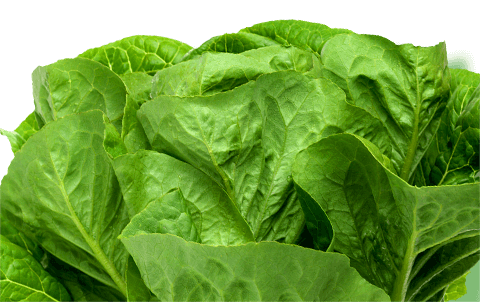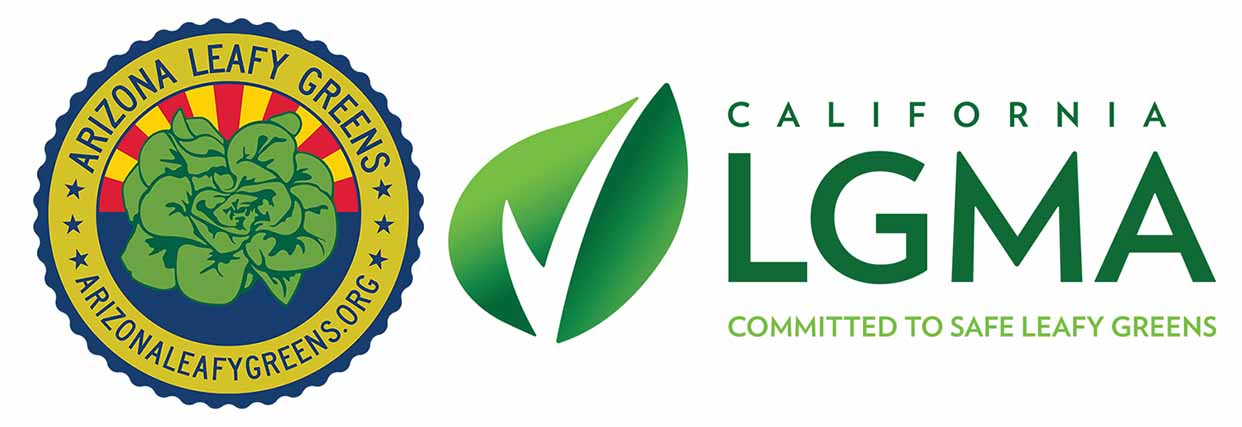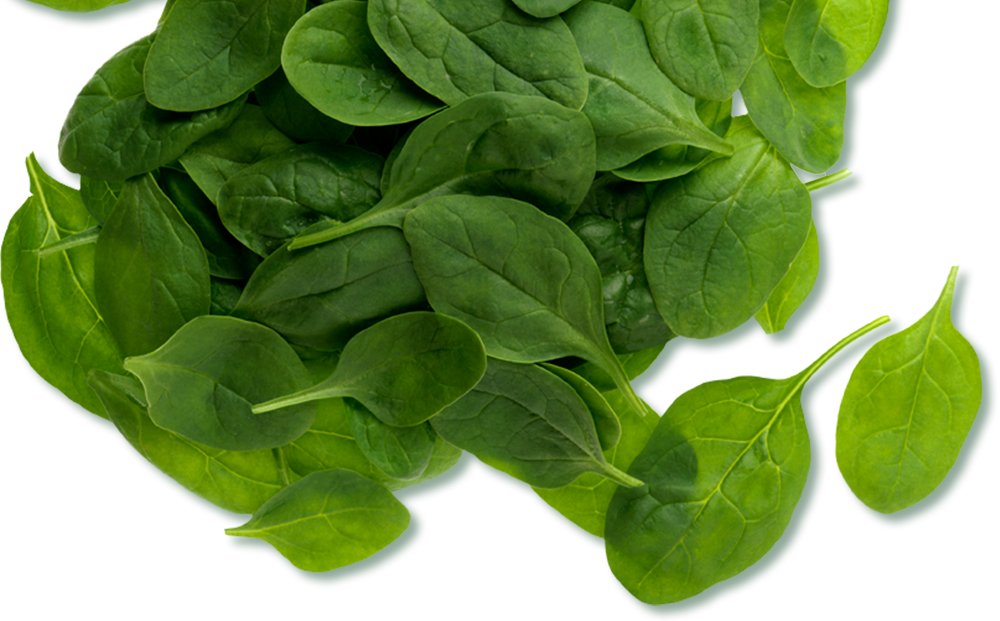Lettuce Safety
Farmers are committed to growing safe food.


No one wants to put an end to lettuce recalls and outbreaks more than farmers who grow lettuce. Farmers work hard everyday to make sure the healthy food they grow is safe for your family and their own.
California and Arizona produce over 90% of the lettuce consumed in the U.S. Lettuce farmers in these two states are members of a program called the Leafy Greens Marketing Agreement. This program exists to ensure that farmers are following a set of science-based food safety practices on their farms.

Under the LGMA food safety program:
- Farms are visited regularly by government officials.
- Government auditors verify that farmers are following over 500 different safety checkpoints.
- The food safety practices farmers must follow are continually reviewed and updated as more information is learned on how to more safely grow lettuce.

Food Safety at Home.
It’s just as important to practice good food safety at home as it is on the farm. Food safety experts know that most foodborne illnesses are caused by improper handling at home or in a restaurant. It is critically important that all leafy greens be handled safely from the time you purchase them in the store to when they are served at your table.
Here are some valuable tips for safe handling of leafy greens.
Frequently Asked Questions
Yes. Romaine lettuce is safe to eat. No government advisory is currently in place recommending consumers avoid eating romaine or any other lettuce. December 23, 2020 the U.S. Centers for Disease Control and the Food and Drug Administration announced the end of three foodborne illness outbreaks that occurred during the late summer and fall of 2020. Although these outbreaks were potentially linked to lettuce, government investigators were not able to confirm the specific food source in any of these outbreaks.
For more information about efforts in place to ensure the safety of lettuce and leafy greens, please visit: https://lettuceinfo.org/lettuce-safety/romaine-lettuce-update/
Lettuce farmers are committed to learning why romaine appears to be the source of recent foodborne illness outbreaks. Efforts are underway throughout the produce industry to get answers.
The U.S. Food and Drug Administration has concluded its investigation into a series of outbreaks potentially linked to romaine lettuce in 2019 and 2020. In response, romaine farmers are taking several steps to prevent future outbreaks.
For more information, please see: https://lettuceinfo.org/lettuce-safety/romaine-lettuce-update/
Farmers are 100 percent committed to preventing foodborne illness outbreaks and they are working hard every day on their farms to implement food safety practices. The Leafy Greens Marketing Agreement (LGMA) is a program that works to continually improve the safety of lettuce and leafy greens. This program utilizes the latest research to update required food safety practices and these are enforced on farms through our system of mandatory government audits.
The LGMA and its members acknowledge the tragic impacts of foodborne illness and we are passionately committed to producing leafy greens in the safest possible manner.
To learn more about what is being done to prevent future outbreaks see Romaine Lettuce Update.
The LGMA was created in 2007 immediately following an E. coli outbreak associated with spinach.
At that time there were no laws governing food safety for produce. So, the leafy greens industry took it upon themselves to create a unique program that invites government auditors onto their farms to make sure they are following a set of science-based food safety practices.
Today, the LGMA is the most stringent food safety program for produce in the country. It operates in addition to new laws that have since been put into place for produce under the Food Safety Modernization Act.
The LGMA requirements are more stringent than what is required by law and members of the LGMA have their farms inspected much more frequently by government regulators.
The Leafy Greens Marketing Agreement (LGMA) is a program that brings farmers together to make lettuce and leafy greens safer. It’s voluntary to join the LGMA but it becomes mandatory once a member signs on.
Members of the LGMA are committed to preventing future outbreaks. The program verifies specific food safety practices for how lettuce and leafy greens are farmed and then enforces these practices through government audit.
When a leafy greens company signs on to the LGMA, they are agreeing to adhere to the required farming practices and they must allow government auditors to visit their farms to conduct food safety audits.
During each government audit, LGMA members are required to pass more than 300 different food safety checkpoints. Each LGMA member is audited by the government an average of 4 times per year.
Currently, LGMA membership includes companies who produce 99% of the lettuce and leafy greens in California. California is the largest lettuce producing state in the nation representing over 70% of what is consumed by consumers.
LGMA membership includes companies who produce 99%of the lettuce and leafy greens in California. California is the largest lettuce producing state in the nation representing over 70% of what is consumed by consumers.
A sister organization exists in Arizona that is identical to the LGMA which means that over 90% of the leafy greens eaten in the U.S. are grown under the stringent LGMA food safety programs.
The leafy greens farming community has worked with scientists, government officials and industry experts to establish science-based food safety practices that include 500 checkpoints. The practices cover the safety of water used in farming lettuce, soil amendments like fertilizers and compost; environmental conditions in and around farms; sanitation of equipment and worker hygiene practices. For more information on the food safety practices click here.

Lettuce Help You
Have a question that hasn’t been answered here? Please feel free to submit it and we will find an expert to answer you.
